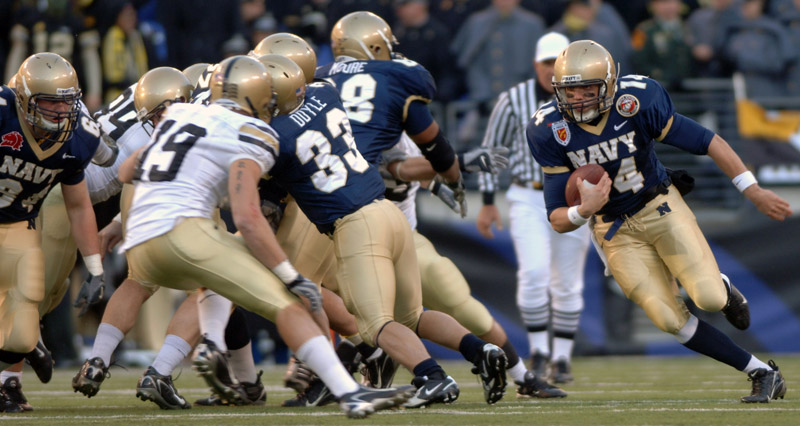When I was listening to The System by Jeff Benedict and Armen Kateyian a few months ago, there seemed to be something missing. I wanted to go further inside college sports to find out how (and if) athletes go to class and where all of the money goes. Fortunately, I didn’t have to wait long to find some of the answers I was seeking because I just finished Gregg Easterbrook’s The King of Sports: Football’s Impact on America. It looked at almost all of the darkened corners of the US’s favorite sport (and my second favorite – far behind hoops).
I was quite familiar with Easterbook because he writes the Tuesday Morning Quarterback column for ESPN (not to be confused with Peter King’s Monday Morning Quarterback column and website for Sports Illustrated). I used to read TMQB weekly because it seemed like an intelligent person’s view of the NFL. Unfortunately, even the most intelligent person –Easterbook is a fellow of the Brookings Institute (whatever that means) and also writes for The Atlantic – can get repetitive and Easterbrook certainly did. He even bragged about using auto-type to fill in the same paragraphs, although all that meant to me was that I wouldn’t have to read the same paragraph. Last year I read his book The Progress Paradox: How Life Gets Better While People Feel Worse, which I enjoyed . It was about how people like to complain that things were better in the old days, but they are mainly just full of it.
This book started off a bit worryingly with a puff article about Virginia Tech coach Frank Beamer, who apparently does things the right way. I have my doubts about all college football (and basketball) coaches, but Beamer does seem to have some sense of values. His values also seem to keep him from winning a mythical national championship with the Hokies. Easterbrook used his season embedded with the Hokies to provide brackets around the book, which was mainly how corrupt pretty much everything connected with football has become. [One other minor criticism is that Easterbrook noted that because some football players are fat, they can be seen as role models for the obese. That seemed like a stretch. Pun intended.]
At the college level, college football is rife with money and the football team has less and less to do with the university. Since the football coach generally makes much more money than the university president, there isn’t much administrators can do to rein in the coach. One very interesting fact was sometimes athletic departments “donate” money to their colleges to support education. This seems bassackwards to me and I think athletics, particularly football and basketball, should simply split away from the university and be their own for-profit business. Somehow sports are considered non-profit and donations can be tax deductible.
In some ways, the NFL is even worse. Rich owners bilk cities to build expensive stadiums through public funding. What does the public get? The right to buy public seat licenses (PSLs) so that they can spend even more money to buy tickets. Rich people get even richer. Eventually (and it won’t be too long), I think pro sports are going to price themselves out of their market (something like this seems to have already happened at Yankee Stadium). I would never vote to provide public funds for a sports arena. If this means the Bucks leave Milwaukee, I won’t cry. Maybe they would win someplace else.
Easterbrook hammers these points repeatedly, which is both good and bad. Much like his TMQB column, the repetitiveness can be annoying. However, I was not reading this book for style, so I appreciated the fact that a person who likes football so much (and certainly much more than me) was willing to be critical (often harshly so) of the sport. Easterbrook provides suggestions for how football could be sustainable (give college football players a sixth year to earn their degree, change NFL helmets, make owners pay for their own damn stadiums), but I can see a point in which its popularity starts to ebb. When that happens, maybe basketball will be king.
Perry Missner is a college basketball enthusiast who writes for RotoWire along with several other outlets. He welcomes your comments on Twitter at @PerryMissner or via email at [email protected]
Add The Sports Daily to your Google News Feed!
